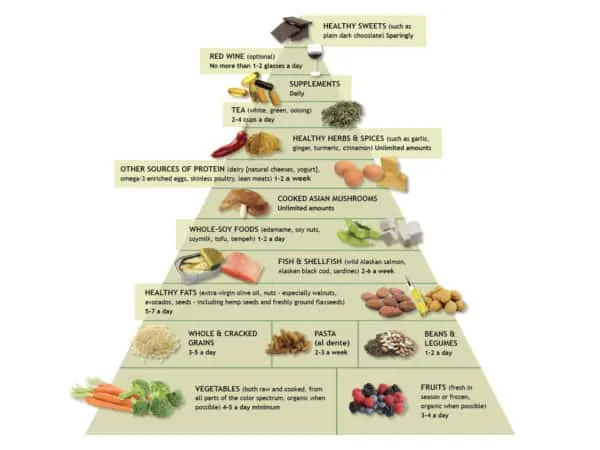Inflammation is the body’s natural response to injury, infection, or harmful stimuli. While acute inflammation is necessary for healing, chronic inflammation can lead to various health issues, including joint pain, digestive disorders, and even chronic diseases like diabetes and heart disease. Fortunately, incorporating anti-inflammatory foods into your diet can help reduce pain, promote gut health, and support overall well-being.
Understanding Inflammation and Its Impact on Health
Before diving into the best anti-inflammatory foods, it is important to understand what inflammation is and how it affects the body. Chronic inflammation can result from stress, poor diet, sedentary lifestyle, and environmental toxins. It is linked to conditions such as arthritis, autoimmune disorders, irritable bowel syndrome (IBS), and metabolic diseases. By making dietary adjustments, you can manage inflammation naturally and improve your health.

Top Anti-Inflammatory Foods
1. Fatty Fish
Fatty fish such as salmon, mackerel, sardines, and tuna are rich in omega-3 fatty acids, which are known for their powerful anti-inflammatory properties. Omega-3s help reduce the production of inflammatory molecules and have been shown to alleviate symptoms of arthritis and inflammatory bowel diseases.
- How to Include: Eat at least two servings per week, grilled, baked, or added to salads.
2. Leafy Green Vegetables
Spinach, kale, collard greens, and Swiss chard are packed with vitamins, minerals, and antioxidants that fight inflammation. They are high in polyphenols and flavonoids, which protect against cellular damage and reduce inflammation.
- How to Include: Add to smoothies, salads, omelets, or stir-fries.
3. Berries
Strawberries, blueberries, raspberries, and blackberries are rich in antioxidants, particularly anthocyanins, which help reduce inflammation and oxidative stress. Berries also promote gut health by supporting beneficial gut bacteria.
- How to Include: Enjoy fresh or frozen in yogurt, smoothies, oatmeal, or as a healthy snack.
4. Turmeric
Turmeric contains curcumin, a powerful compound known for its strong anti-inflammatory and antioxidant properties. Curcumin has been studied for its ability to reduce pain in arthritis and improve gut health by promoting a balanced microbiome.
- How to Include: Add to soups, curries, teas, or take it as a supplement with black pepper for better absorption.
5. Ginger
Ginger has been used for centuries in traditional medicine for its anti-inflammatory and digestive benefits. It helps relieve nausea, bloating, and inflammatory conditions like osteoarthritis.
- How to Include: Use fresh or powdered ginger in teas, smoothies, stir-fries, and soups.
6. Nuts and Seeds
Almonds, walnuts, chia seeds, flaxseeds, and hemp seeds are excellent sources of healthy fats, fiber, and antioxidants that reduce inflammation and support heart and gut health.
- How to Include: Sprinkle on oatmeal, yogurt, salads, or blend into smoothies.
7. Olive Oil
Extra virgin olive oil is a staple in the Mediterranean diet and is packed with anti-inflammatory compounds, particularly oleocanthal, which has effects similar to ibuprofen.
- How to Include: Use as a salad dressing, drizzle over roasted vegetables, or incorporate into cooking.
8. Garlic and Onions
Both garlic and onions contain sulfur compounds that have potent anti-inflammatory effects. Garlic has been found to boost immune function and reduce inflammation, while onions are rich in quercetin, a flavonoid with anti-inflammatory properties.
- How to Include: Use in stir-fries, soups, sauces, and marinades.
9. Green Tea
Green tea is loaded with polyphenols, including epigallocatechin gallate (EGCG), which has been shown to reduce inflammation and support gut health by promoting beneficial bacteria.
- How to Include: Drink 2-3 cups daily, hot or iced, for maximum benefits.
10. Fermented Foods
Probiotic-rich foods like yogurt, kefir, sauerkraut, kimchi, and miso enhance gut health by supporting a balanced microbiome, which in turn reduces inflammation throughout the body.
- How to Include: Have a serving of fermented food daily as a side dish or snack.

Foods to Avoid That Promote Inflammation
While adding anti-inflammatory foods is important, avoiding pro-inflammatory foods is equally crucial. Here are some common culprits:
- Processed Foods: Chips, fast food, and packaged snacks
- Refined Carbs: White bread, pastries, and sugary cereals
- Sugary Drinks: Sodas, energy drinks, and fruit juices with added sugars
- Fried Foods: French fries, fried chicken, and processed meats
- Excess Alcohol: Too much alcohol can damage gut health and trigger inflammation
Lifestyle Tips to Complement an Anti-Inflammatory Diet
In addition to eating anti-inflammatory foods, adopting healthy lifestyle habits can further reduce inflammation:
- Stay Hydrated: Drink plenty of water to support digestion and detoxification.
- Exercise Regularly: Engage in moderate physical activity like walking, yoga, or strength training.
- Get Quality Sleep: Aim for 7-9 hours of restful sleep each night.
- Manage Stress: Practice meditation, deep breathing, and mindfulness to lower stress-induced inflammation.
Conclusion
Incorporating anti-inflammatory foods into your diet is one of the most effective ways to reduce pain, improve gut health, and enhance overall well-being. From fatty fish and leafy greens to turmeric and fermented foods, making these dietary changes can help your body function at its best. Combine these habits with a healthy lifestyle to maximize the benefits and achieve long-term health. Start today and feel the difference!
